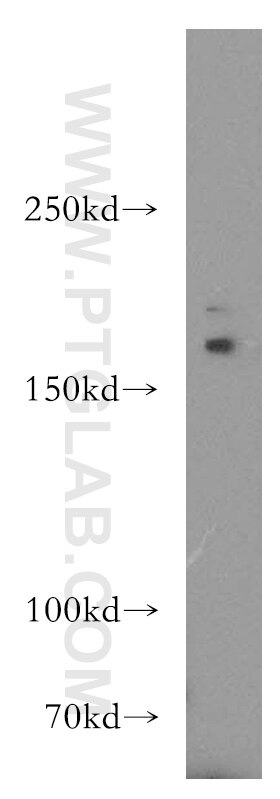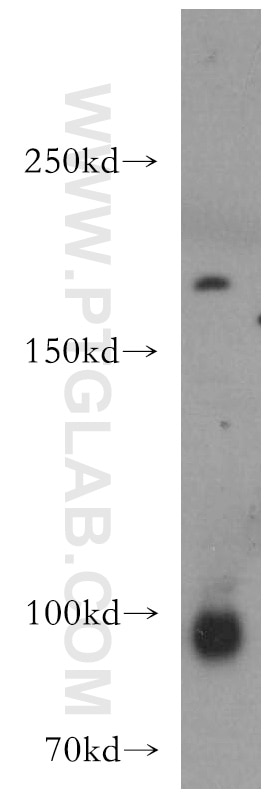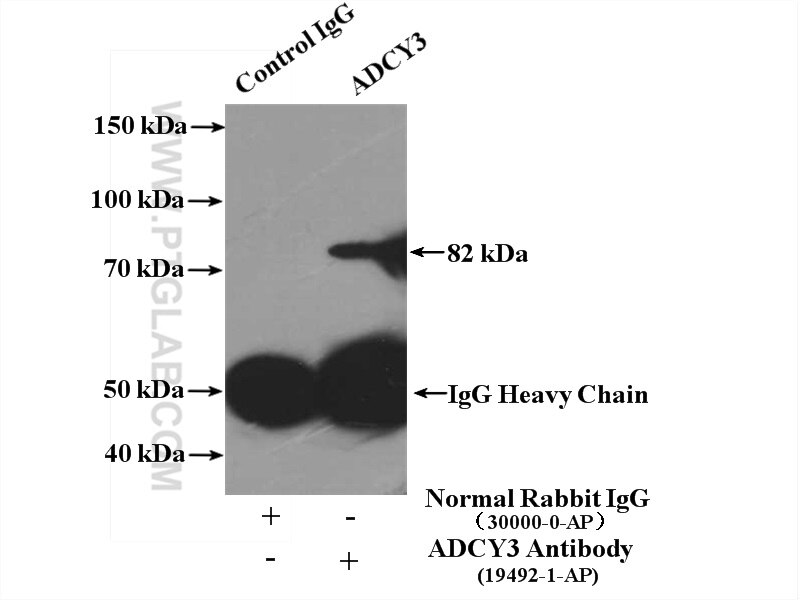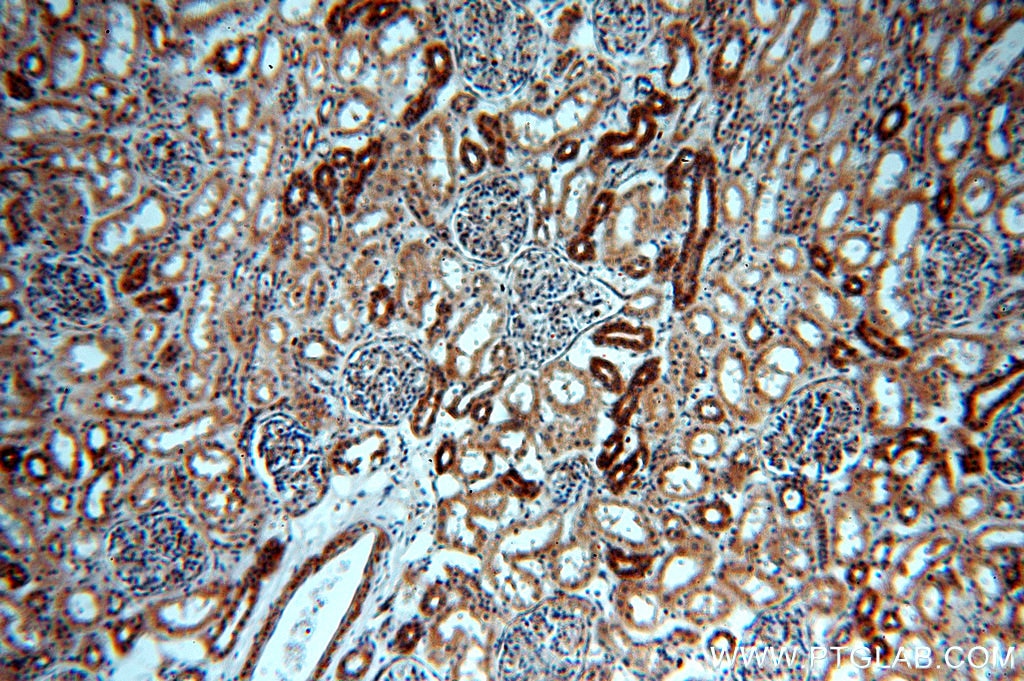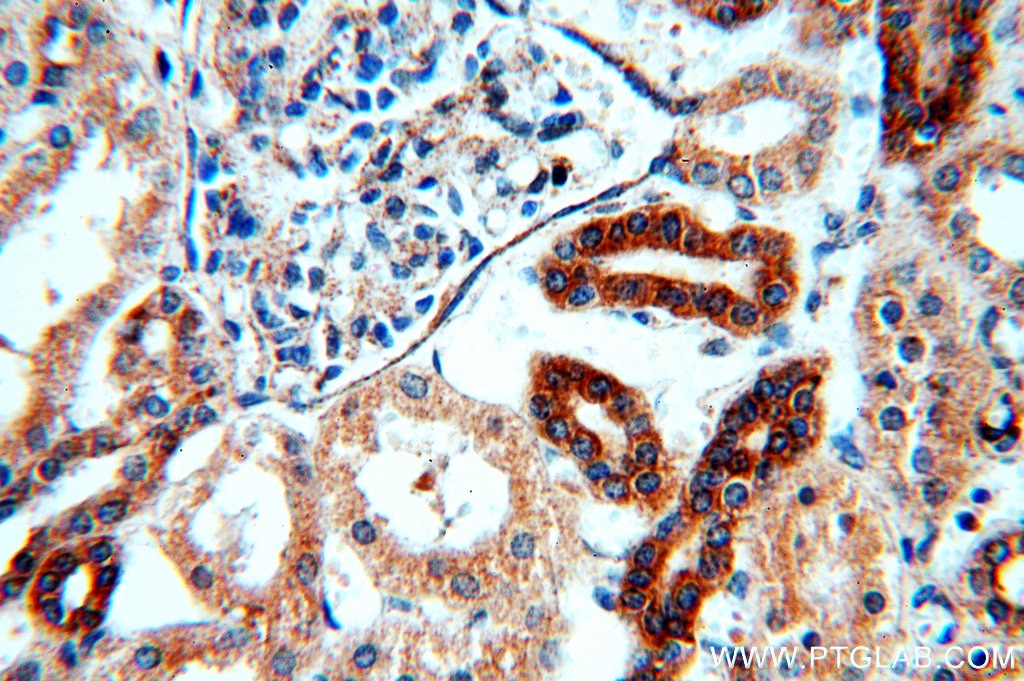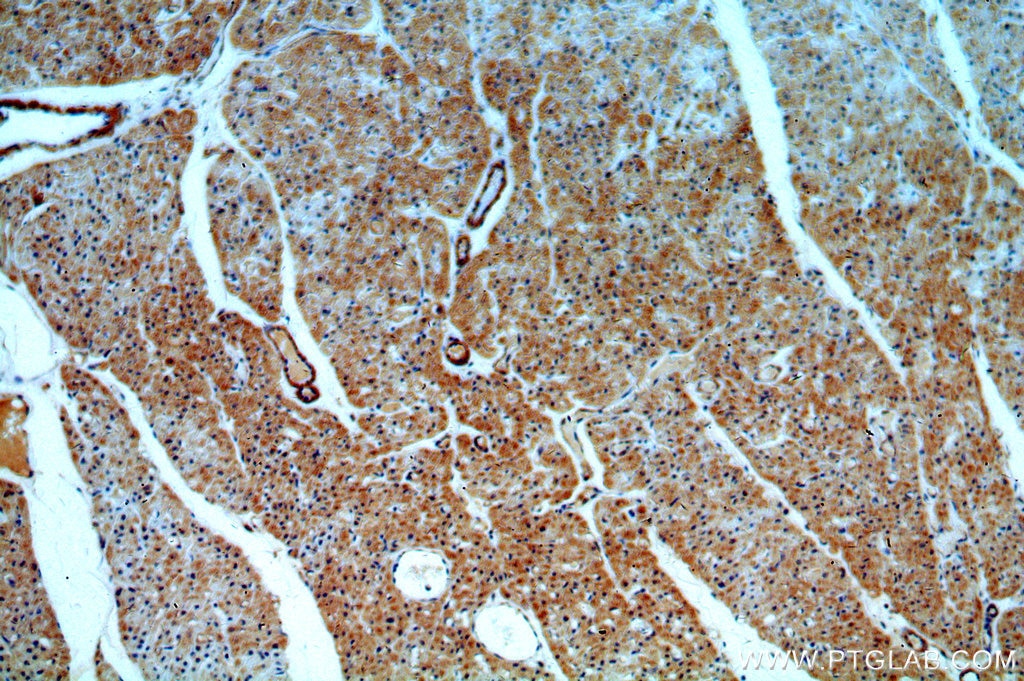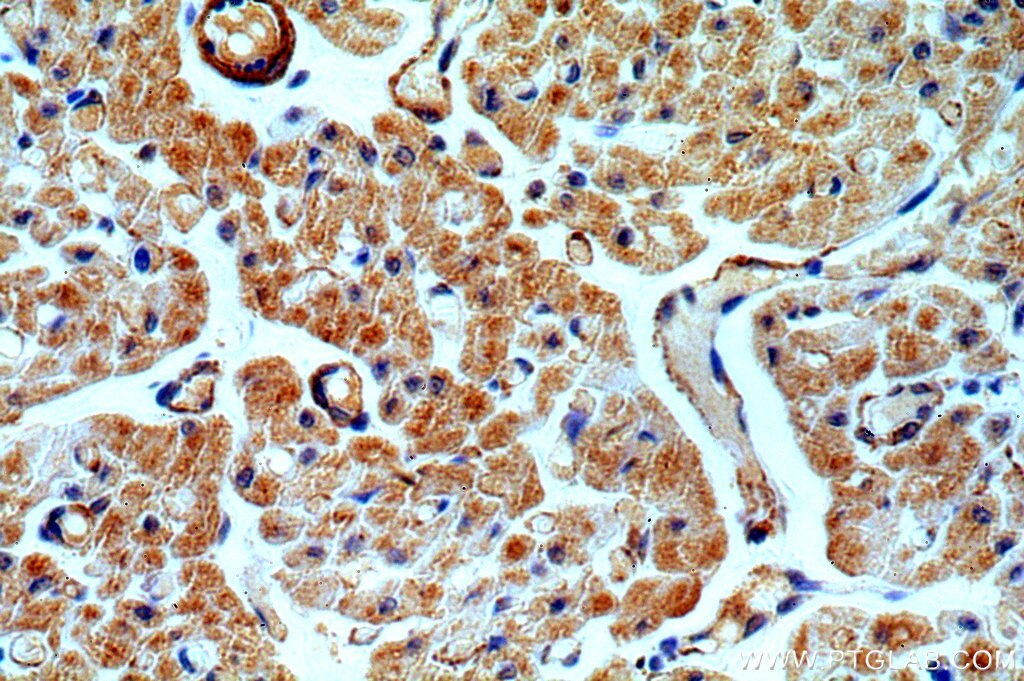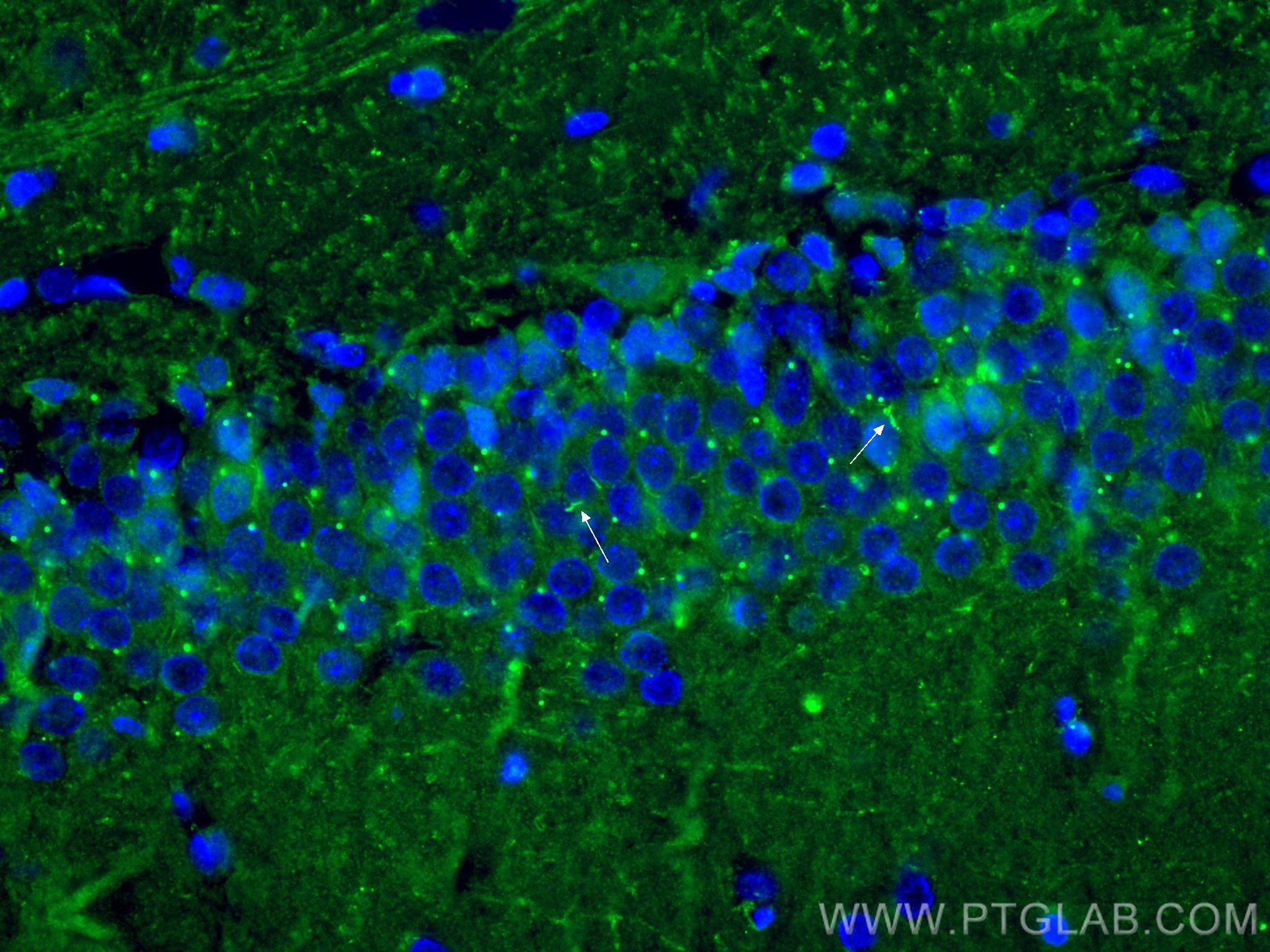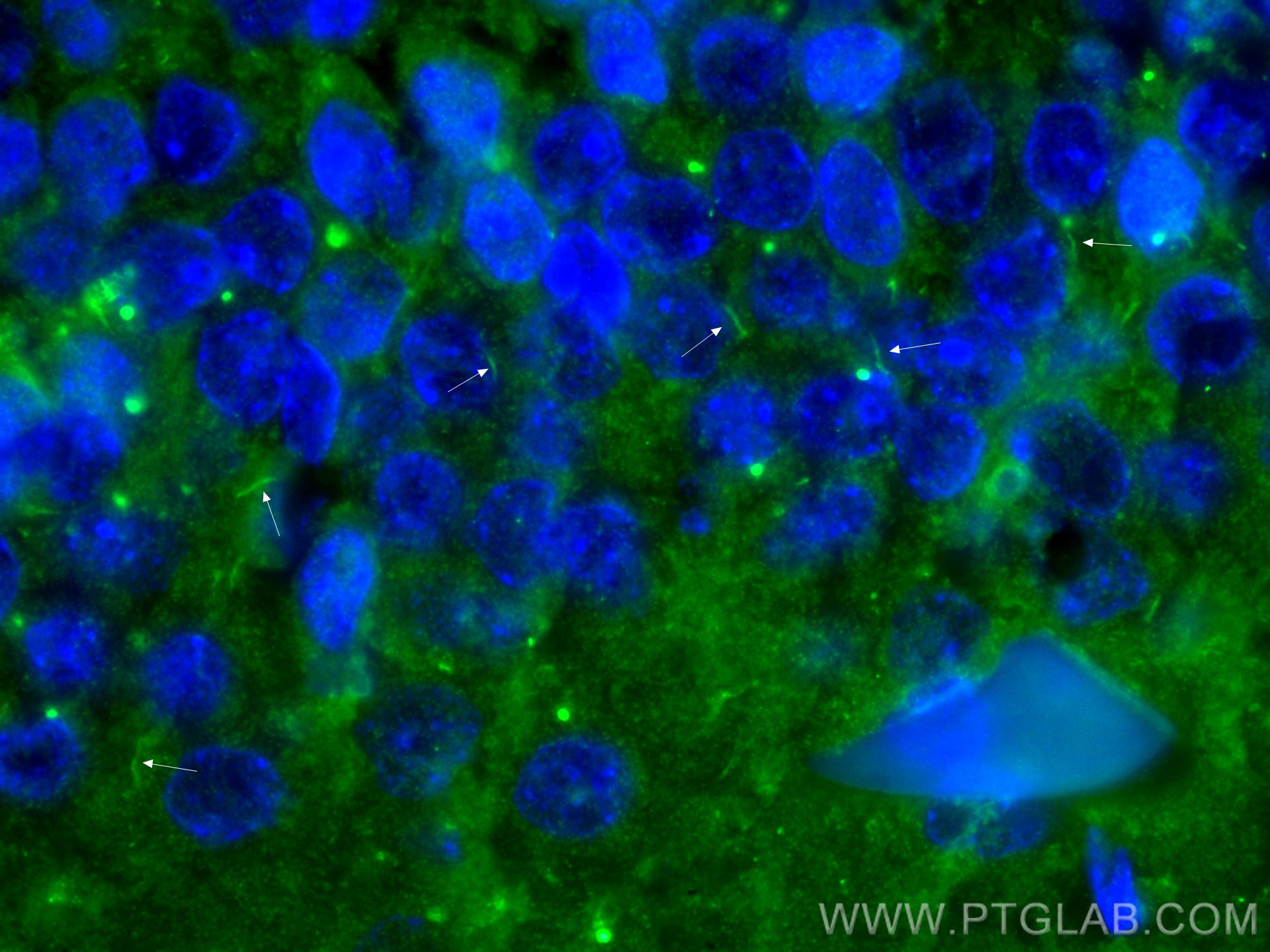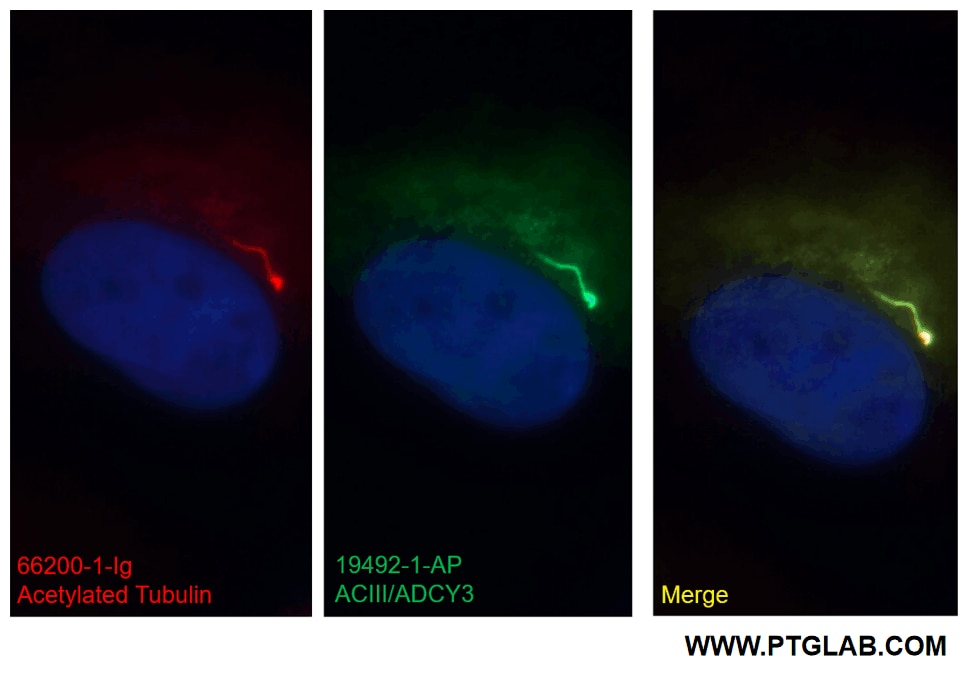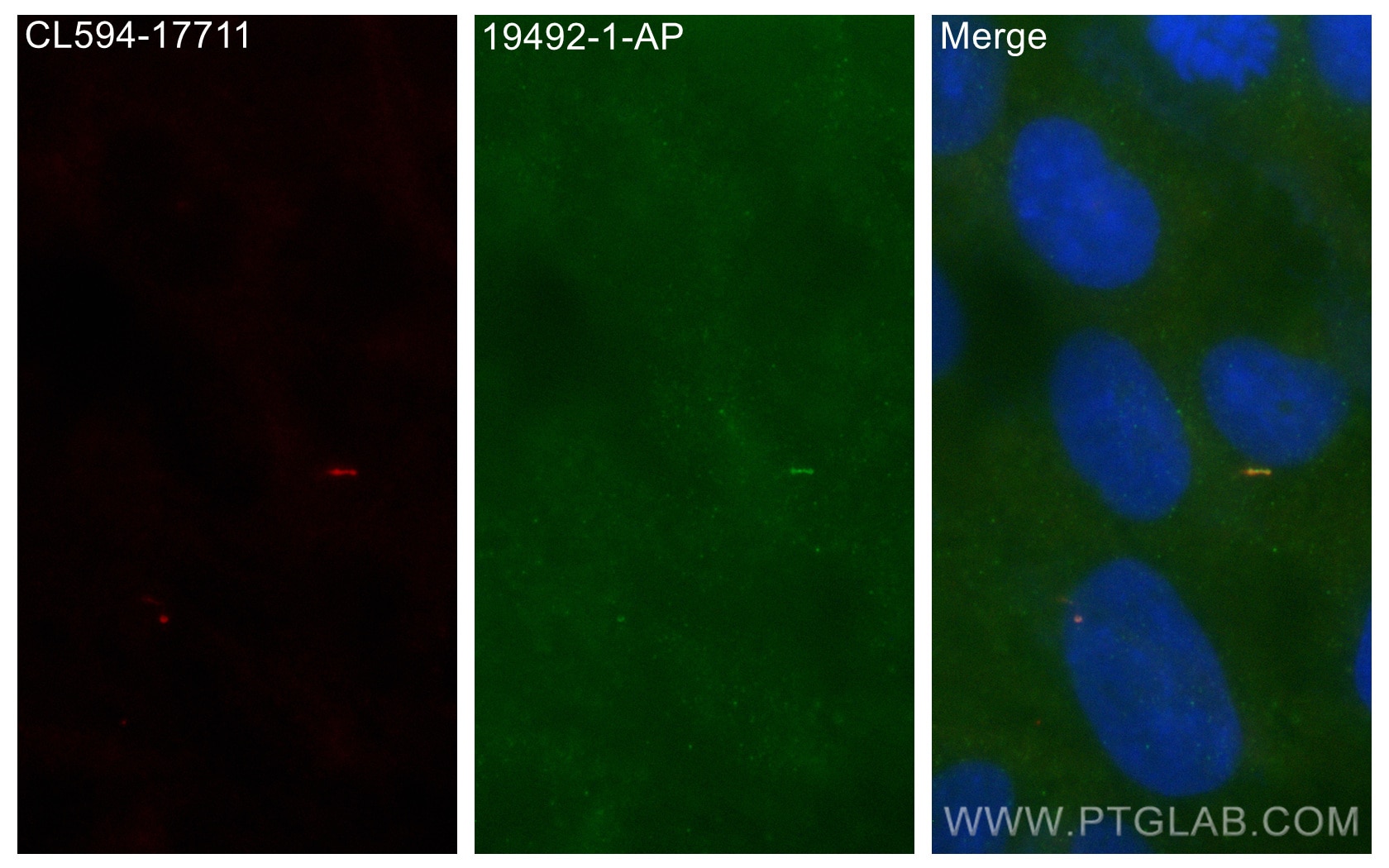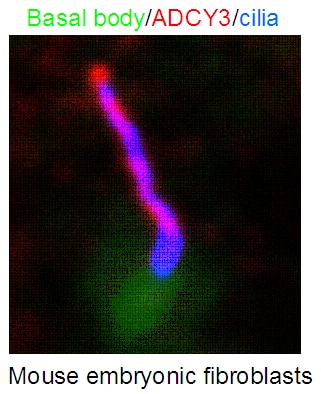Anticorps Polyclonal de lapin anti-ADCY3
ADCY3 Polyclonal Antibody for WB, IHC, IF/ICC, IF-P, IP, ELISA
Hôte / Isotype
Lapin / IgG
Réactivité testée
canin, Humain, rat, souris
Applications
WB, IHC, IF/ICC, IF-P, IP, ELISA
Conjugaison
Non conjugué
N° de cat : 19492-1-AP
Synonymes
Galerie de données de validation
Applications testées
| Résultats positifs en WB | tissu de muscle squelettique de souris, tissu cérébral humain |
| Résultats positifs en IP | cellules MDCK |
| Résultats positifs en IHC | tissu rénal humain, tissu cardiaque humain il est suggéré de démasquer l'antigène avec un tampon de TE buffer pH 9.0; (*) À défaut, 'le démasquage de l'antigène peut être 'effectué avec un tampon citrate pH 6,0. |
| Résultats positifs en IF-P | tissu cérébral de rat, |
| Résultats positifs en IF/ICC | cellules hTERT-RPE1, cellules MDCK |
Dilution recommandée
| Application | Dilution |
|---|---|
| Western Blot (WB) | WB : 1:500-1:1000 |
| Immunoprécipitation (IP) | IP : 0.5-4.0 ug for 1.0-3.0 mg of total protein lysate |
| Immunohistochimie (IHC) | IHC : 1:20-1:200 |
| Immunofluorescence (IF)-P | IF-P : 1:50-1:500 |
| Immunofluorescence (IF)/ICC | IF/ICC : 1:200-1:800 |
| It is recommended that this reagent should be titrated in each testing system to obtain optimal results. | |
| Sample-dependent, check data in validation data gallery | |
Applications publiées
| WB | See 6 publications below |
| IHC | See 2 publications below |
| IF | See 7 publications below |
Informations sur le produit
19492-1-AP cible ADCY3 dans les applications de WB, IHC, IF/ICC, IF-P, IP, ELISA et montre une réactivité avec des échantillons canin, Humain, rat, souris
| Réactivité | canin, Humain, rat, souris |
| Réactivité citée | rat, Humain, souris |
| Hôte / Isotype | Lapin / IgG |
| Clonalité | Polyclonal |
| Type | Anticorps |
| Immunogène | Peptide |
| Nom complet | adenylate cyclase 3 |
| Masse moléculaire calculée | 129 kDa |
| Poids moléculaire observé | 170-180 kDa |
| Numéro d’acquisition GenBank | NM_004036 |
| Symbole du gène | ADCY3 |
| Identification du gène (NCBI) | 109 |
| Conjugaison | Non conjugué |
| Forme | Liquide |
| Méthode de purification | Purification par affinité contre l'antigène |
| Tampon de stockage | PBS avec azoture de sodium à 0,02 % et glycérol à 50 % pH 7,3 |
| Conditions de stockage | Stocker à -20°C. Stable pendant un an après l'expédition. L'aliquotage n'est pas nécessaire pour le stockage à -20oC Les 20ul contiennent 0,1% de BSA. |
Informations générales
ADCY3 is an adenylate cyclase (AC) functioning to convert ATP to cAMP in response to signals initiated by activation of Gs-coupled receptors. To date, 10 isoforms of AC have been cloned in mammals. Initially identified in olfactory cilia, ADCY3 is regarded as the olfactory isoform and required for detection of odorants. Recently it has been found that outside of the olfactory epithelium the olfactory-like signaling pathway including AC3 may also have a key role in spermatogenesis and spermatozoa functions. In addition, the ciliary location of AC3 makes it as a prominent marker for primary cilia in brain.AC3 is typically found at 130 kDa in olfactory tissues.In nonolfactory tissues (such as sperm), this protein is reported to migrate with a molecular mass of 55 kDa,occasionally accompanied by additional bands at either 90 or 130 kDa(PMID:9539154).
Protocole
| Product Specific Protocols | |
|---|---|
| WB protocol for ADCY3 antibody 19492-1-AP | Download protocol |
| IHC protocol for ADCY3 antibody 19492-1-AP | Download protocol |
| IF protocol for ADCY3 antibody 19492-1-AP | Download protocol |
| IP protocol for ADCY3 antibody 19492-1-AP | Download protocol |
| Standard Protocols | |
|---|---|
| Click here to view our Standard Protocols |
Publications
| Species | Application | Title |
|---|---|---|
Acta Physiol (Oxf) Aromatherapy: Activating Olfactory Calcium-sensing Receptors Impairs Renal Hemodynamics via Sympathetic Nerve-mediated Vasoconstriction. | ||
Hum Mol Genet Shortened primary cilium length and dysregulated Sonic hedgehog signaling in Niemann-Pick C1 disease. | ||
Biomolecules Preferential Expression of Ca2+-Stimulable Adenylyl Cyclase III in the Supraventricular Area, including Arrhythmogenic Pulmonary Vein of the Rat Heart. | ||
Front Physiol Expression Regulation of Water Reabsorption Genes and Transcription Factors in the Kidneys of Lepus yarkandensis. | ||
Dev Dyn Phosphosite T674A mutation in kinesin family member 3A fails to reproduce tissue and ciliary defects characteristic of CILK1 loss of function. | ||
